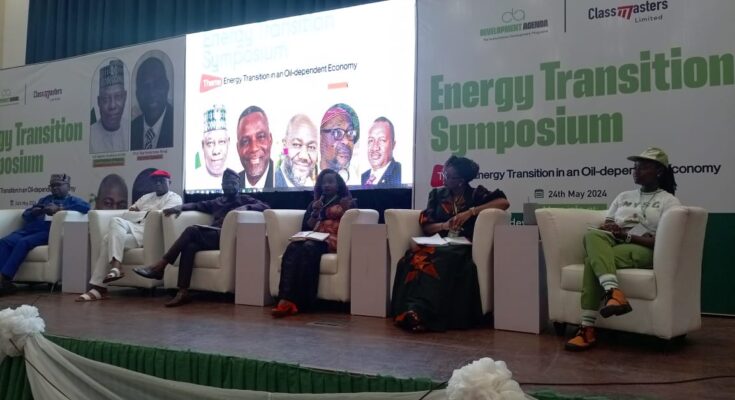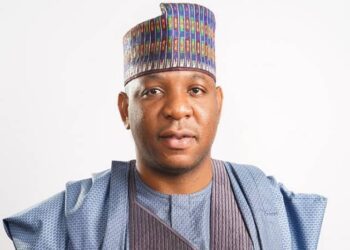Vice President Kashim Shettima has emphasised the need for bold action to address the devastating impact of climate change, while also prioritising rapid economic development to improve the livelihoods of Nigerians.
He highlighted the country’s current energy challenges, including 45% of the population lacking access to electricity and a significant dependence on biomass for energy generation.
He noted this while delivering a speech at the Energy Transition Symposium organised by Development Agenda in Abuja on Friday with theme: ‘Energy Transition in an Oil-Dependent Economy’.
He said Nigeria today has the highest rate of deforestation in the world, as people depend primarily on biomass for energy generation.
According to him, in the North, desert encroachment is threatening the livelihood of communities, especially in the Lake Chad Basin. In the South, rising sea levels threaten our coastal cities and communities.
President Shettima, represented by Sadiq Wanka, the Special Adviser to the President on Power and Infrastructure said, “We find ourselves at a critical juncture, faced with two important priorities that may appear to be in conflict with each other, but with adequate planning and sequencing, are not.
“The first is the need for bold action to stem the deleterious impact of climate change, and the second is the need for rapid economic development that enhances the livelihood of Nigerians.
“Nigeria today has the highest rate of deforestation in the world, as people depend primarily on biomass for energy generation. In the North, desert encroachment is threatening the livelihood of communities, especially in the Lake Chad Basin. In the South, rising sea levels threaten our coastal cities and communities.
“The energy transition plan is very clear on the need for Nigeria to become a net-zero economy by 2060. But it does so with the critical realization that we must maximize our petroleum resources in the short term to provide the base load energy that would turbocharge the economy.”
Also, the Publisher and Editor-in-Chief of Development Agenda Magazine,Mr. Paddy Ezeala emphasized the need for a just energy transition that benefits all Nigerians, particularly those impacted by the extractive industry.
He stressed the importance of community engagement and participation in the energy transition process.
Ezeala noted, “As the world seeks to pivot away from fossil fuels towards less polluting, cleaner energy sources, countries of the global south and their citizens are palpably disadvantaged – either as inheritors of the burden of extraction or of lack of resources and technology to compete. This speaks to the issue of justice and inclusion in the energy transition paradigm.”




